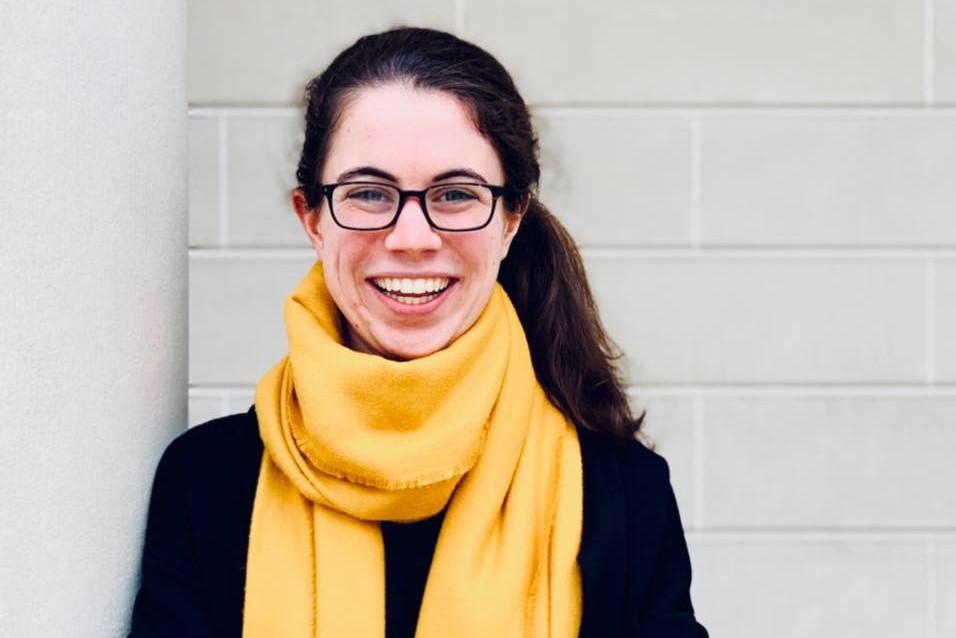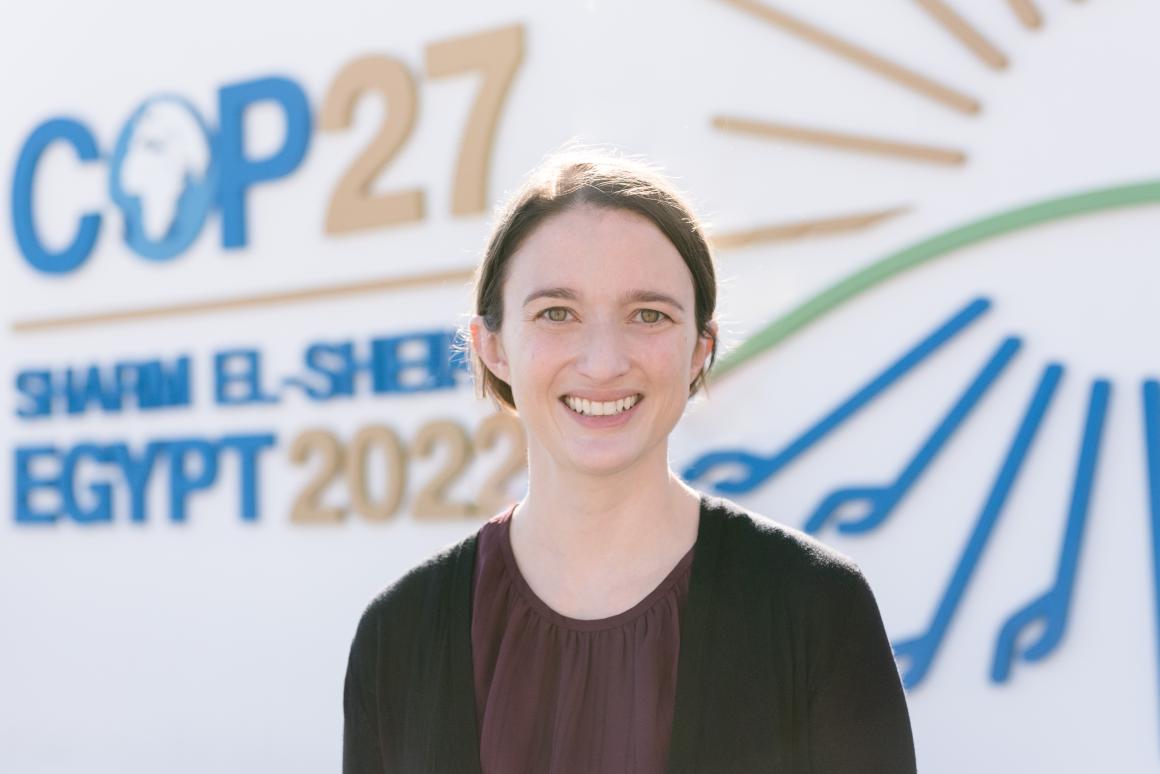-

Hear from Monica Toft, Academic Dean
Learn how Monica Toft, Academic Dean, is shaping the study of global affairs and diplomacy at Fletcher.
Hear from Prof. Toft -

Explore Fletcher academics in action
Fletcher Features offers insights, innovation, stories and expertise by scholars.
Get global insights -
Get application tips right from the source
Learn tips, tricks, and behind-the-scenes insights on applying to Fletcher from our admissions counselors.
Hear from Admissions -

Research that the world is talking about
Stay up to date on the latest research, innovation, and thought leadership from our newsroom.
Stay informed -
Meet Fletcherites and their stories
Get to know our vibrant community through news stories highlighting faculty, students, and alumni.
Meet Fletcherites -

Forge your future after Fletcher
Watch to see how Fletcher prepares global thinkers for success across industries.
See the impact -

Global insights and expertise, on demand.
Need a global affairs expert for a timely and insightful take? Fletcher faculty are available for media inquiries.
Get in Touch
Inside the MGA: An Experiential and Focused Global Affairs Degree
Fletcher’s Master in Global Affairs program celebrates inaugural cohort
In the fall of 2021, The Fletcher School launched its Master in Global Affairs (MGA) degree program for mid-career professionals. This February, the program graduated its first class, preparing a cohort of leaders ready to address complex issues in international relations.
The MGA provides a rigorous, interdisciplinary education on a timeline designed for career-minded professionals.
“The MGA is for those people who know what they want to do but realize that they need to acquire specialized knowledge or skills to accomplish their goals—and don’t want to take too much time out of the workforce,” said Academic Dean Kelly Sims Gallagher.
“The degree is intensive. Students graduate a semester early, which saves on tuition and gets graduates back into gainful employment faster than a typical two-year degree,” she added. “It allows students to experiment with a new sector or field through the internship and practicum, and adds to their resumes with real-world experience.”
Flexibility for a Full-Time Schedule
“With a flexible curriculum, accelerated pace, and the ability to pursue as a part-time student while continuing my full-time professional role, the MGA is tailor-made for me at this juncture in my career,” said Melinda Monzione F24.
A native Bostonian, Monzione is the director of the global traveling exhibition program at the Museum of Fine Arts, Boston (MFA). For years, she’d considered enrolling in Fletcher’s MALD program, but as her career rapidly accelerated, it became difficult to walk away from professional opportunities for academia. Offered in both full- and part-time modalities, the MGA gave her the flexibility she needed.
In her role at the MFA, Monzione cultivates global partnerships with museums and cultural institutions to share art and scholarship from the MFA’s vast collection. The department furthers the museum’s mission to engage a global community through direct encounters with works of art. By embracing the value of cross-cultural exchange, they foster mutual understanding and reveal meaningful connections for visitors around the world.
“I searched for a graduate program that would allow me the flexibility to gain a broad spectrum, cross-disciplinary education at the intersection of global affairs, business, and leadership—while offering the latitude to independently study the emerging theory and practice of Cultural Diplomacy,” said Monzione.
“The MGA allowed me to pursue my professional and academic ambitions simultaneously,” she added. “To be here as part of the inaugural class—I’m consumed by a feeling of right place, right time.”
Interdisciplinary Curriculum for a Complex World
After 17 years working in climate, clean energy, and environmental policy engagement, Emily Dahl F23 was ready to go back to school.
“As a mid-career professional who wanted to broaden and deepen my international climate and environmental policy and analytical skills, I was drawn to the MGA program format,” said Dahl. “The year-and-a-half timeframe and intensive focus on a single field meant that I could learn a lot over a relatively short period of time.”
Dahl was pleased by Fletcher’s dynamic course offerings, which span diverse subjects within the climate space and in closely related areas.
“I found the MGA curriculum for a single field of study helpful for guiding my interdisciplinary interests while enabling flexibility to explore specific topics of interest, such as tropical forest conservation and nature-based solutions for climate change mitigation, adaptation, and resilience,” said Dahl. “Through the program, I was able to enhance my ability to analyze and engage with complex climate, environmental, and development topics from a variety of quantitative and qualitative perspectives.”
For professionals like Dahl, Fletcher is uniquely situated to offer a curriculum that illuminates such complex, multisectoral issues.
“We have no disciplinary departments at Fletcher. Rather, faculty and students are aligned around problem-centered fields of study, whether security studies or environmental and development,” said Gallagher.
“Philosophically, Fletcher believes that no problem can be understood or addressed through the lens of one discipline alone, so MGA students will be taught by economists, political scientists, anthropologists, historians, lawyers, and faculty who are interdisciplinary themselves.”
Practical Experience for Working Professionals
With an internship for credit and a final capstone practicum, the MGA is experiential and focused in nature, training students who will become leaders upon graduation.
“It’s a degree for those who know what they want to do in the world, and who are coming to Fletcher to gain the specific skills and types of knowledge that they need to equip themselves for their career,” said Gallagher.
The program culminates in the practicum. Students work with real-world client organizations to help them solve a problem or to develop a strategy. Guided by a faculty member, they are expected to utilize the skills and knowledge acquired during the degree to address the needs of the organization.
This past year, student teams worked with NATO and the U.S. Department of Energy (DOE). For NATO, students worked with a Fletcher alum, Wendin Smith, who is the Director of Arms Control and Disarmament, to provide strategic assessments for arms control of weapons of mass destruction. For DOE, students developed a strategy for reducing energy poverty in the United States.
“Working with the U.S. Department of Energy for my practicum provided a unique opportunity to conduct research and make recommendations that could help inform policymaking,” said Dahl.
“Over the fall semester, two fellow MGA teammates and I examined the context of energy poverty in the United States, including the history of systemic racism and government-sanctioned unfair housing practices that have contributed greatly to energy affordability and efficiency challenges for communities of color,” she added. “We researched past and current energy affordability and efficiency assistance programs in the U.S. and other countries to develop our findings and recommendations for a path forward for U.S. policymakers at DOE and other agencies.”
A Fast-Paced Program—in the Fletcher Family
The MGA promises a rigorous education, and students enjoy the benefits of being embedded in Fletcher’s global community.
“At Fletcher, it’s commonplace to be surrounded by extraordinary minds from across the world,” said Monzione. “The profound rarity of Fletcher’s global community is not lost on me; to be part of the MGA cohort in the classroom and beyond has been a transformative experience.”
Dahl found this to be true throughout her experience as well. “It’s been a privilege to learn from leading climate, environmental, and international development practitioners—including many women leaders—and from my classmates, whose warmth and wealth of knowledge made my time at Fletcher so enjoyable,” she said.
During her time at Fletcher, Dahl appreciated countless opportunities for global engagement. She participated in a discussion with Global Environmental Facility CEO Carlos Manuel Rodríguez, worked with the Climate Policy Lab on several research projects, completed a summer fellowship with CDP on sustainable infrastructure finance for local governments, and attended the Arctic Circle Assembly in Iceland and the UNFCCC Conference of the Parties (COP27) in Egypt as a delegate.
“Emily traveled with me to the international climate negotiations in Sharm El-Sheik, Egypt, where she participated in many events, observed the negotiations, met many prospective employers, and helped me navigate the complex media environment with grace and finesse,” said Gallagher.
“We are proud of our inaugural class,” she added. “The students were remarkable in their dedication and commitment, and they formed close bonds with each other even while integrating seamlessly with the other degree programs at the school.”
Read more about Fletcher’s MGA degree program.



